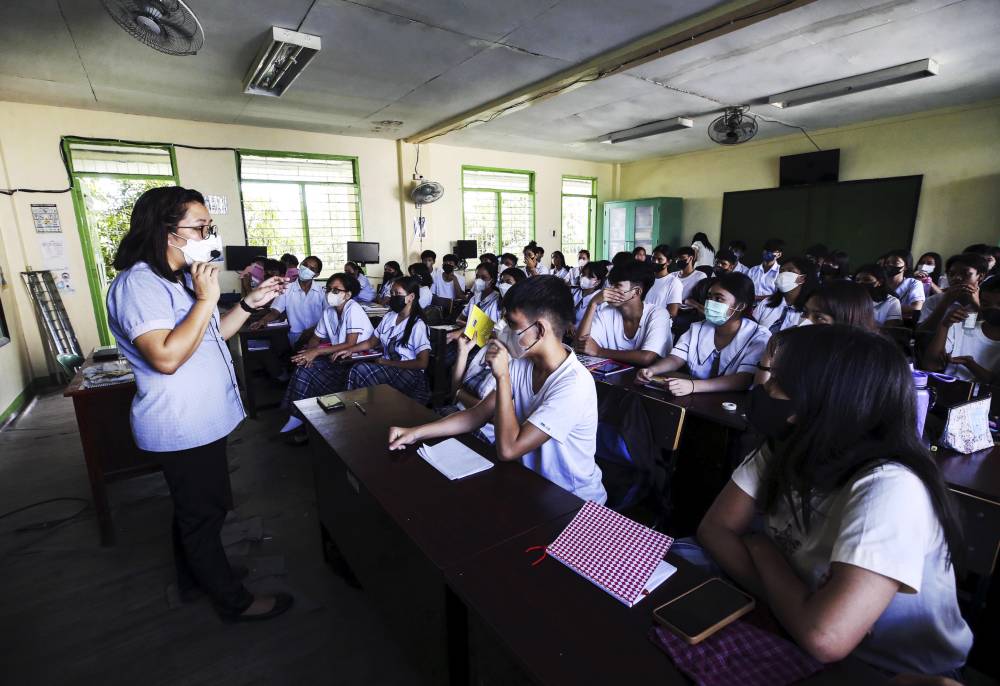Business leaders make fresh push for education

Legislators should consider investing the national budget in education, particularly investing in learners and human capital, an influential group of business leaders said on Saturday.
The Philippine Business for Education (PBEd), founded in 2006, also backed the opening of budget deliberations to the public, saying this would “help strengthen accountability and ensure that public funds truly serve the people.”
The group is now led by Ramon del Rosario Jr. of Phinma Corp., Aurelio Montinola III of the Far Eastern University, Lito Tayag of Accenture Philippines, Edgar Chua of Cavitex Holdings Inc. and Dr. Chito Salazar of Phinma Corp.
PBEd executive director Bal Camua also lamented how education remained underfunded in the Philippines, lagging behind the global standard of allocating at least 4 to 6 percent of the country’s gross domestic product (GDP) set by the United Nations Educational, Scientific and Cultural Organization.
Camua said the 2026 budget, which is now up for deliberations in both houses of Congress, only had P1.178 trillion for education, translating to only 3.8 percent of the country’s GDP.
“We must allocate our resources where it matters most, because every peso wasted denies our people access to vital programs—such as education, nutrition, and healthcare—that they rightfully deserve,” Camua said.
Low average spending
He also cited the Second Congressional Commission on Education’s Year Two report, which reveals that education spending averaged only at 3.2 percent of the GDP over the past decade.
Education seems to be the least priority under the appropriations laws in the past years, despite the 1987 Constitution mandating the government to give education the “highest priority.”
“[The] Philippines continues to fall short of global standards, with chronic underinvestment remaining a persistent challenge,” Camua said. “We cannot afford to let insertions and inefficiencies eat into the education budget.”
The Marcos administration made an insistence last year that it had provided more for education under the 2025 budget, including the allocations for military and police schools, which several education organizations criticized by questioning its inclusion.
“Every year, we delay meeting the standard, we risk losing a generation,” Camua said.

















